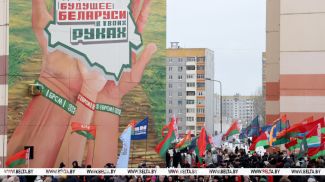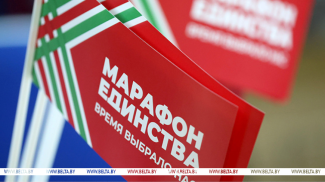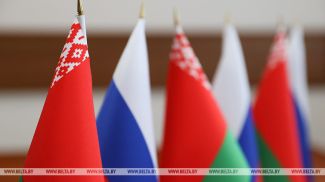MINSK, 15 June (BelTA) – Belarusian Labor and Social Security Minister Irina Kostevich spoke at the plenary meeting of the 109th International Labor Conference in the format of a video conference call, BelTA learned from the ministry.
The 109th International Labor Conference is running from 28 May to 19 June. Belarus is represented by a tripartite delegation of the Republic of Belarus, comprising representatives of the government, trade unions and employers. This year's plenary discussion focuses on the impact of the COVID-19 pandemic on the labor sector. ILO Director General Guy Ryder delivered opening remarks on the work in the time of COVID.
Speaking at the plenary session, Irina Kostevich reflected on the social and labor policy measures taken in Belarus amid the pandemic to minimize its impact, to increase the income of citizens, maintain the stability of the labor market. The measures included special monthly bonuses to healthcare and social workers; additional payments from the national budget to underemployed workers; social guarantees to workers on sick leave. Irina Kostevich drew attention to the active use of new flexible forms of employment in the national system of labor relations, mainly distant work, naming it the most important trend in the Belarusian labor market during the pandemic.
The minister also informed about additional legislative measures in labor relations taken by the state. An important step to protect workers' health was the possibility of using three days off in case of a sickness without the need to receive a sick leave. According to the minister, these measures have yielded a positive effect. Throughout the pandemic there were no periods of mass layoffs in the country. The unemployment rate stood at 4% in 2020, and there was no decrease in people's incomes.
Irina Kostevich stressed the importance of ensuring that the ILO agenda, which priority is decent work for all, remains relevant. In this regard, the minister supported the adoption of the final document of the conference on the response to the crisis caused by the COVID-19 pandemic. The document contains clear and understandable guidelines for the development of necessary social and economic policies.












